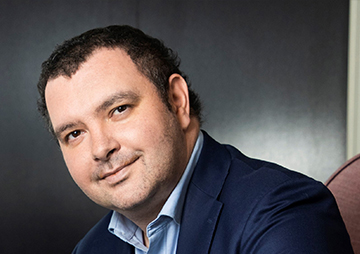- Home
- Studies and research
- Real estate convictions : 2021 overview
Real Estate Convictions Europe : 2021 Overview
After a year in 2020 affected by the economic shock of Covid-19, 2021 brought a vigorous economic recovery which created supply-chain bottlenecks.
Although the global economic recovery is continuing, 2022 has already brought the first of its own economic challenges: disrupted supply chains, high inflation, record debt. Uncertainties include the impact of the Omicron variant -- which seems to have milder symptoms -- questions over the adoption of the massive ‘Build Back Better’ stimulus programme in the USA, the continued weakness in the Chinese real estate sector and the risks associated with a possible conflict between Ukraine and Russia. For the time being, the global economy is expected to grow by 4.4% in 2021 and 3.8% in 2022.
The recovery in the Eurozone continued in the fourth quarter of 2021. Economic activity is likely to remain strong in 2022, but a slowdown is to be expected in 2023. Eurozone growth is likely to be strong in 2022, at 4.0%, but then slow to around 2.7% in 2023. A similar trend is expected in each member state. GDP growth in Spain is expected to be 5.5% in 2022 and then 4.3% in 2023, followed by Italy (4.4% then 2.5%), Germany (3.9% and 2.9%), France (3.7% and 2.3%), the Netherlands (3.5% and 2.1%), and Belgium (3.0% and 1.4%).
Imbalances between supply and demand contributed to high levels of inflation in the fourth quarter of 2021. In the ECB’s eyes, the increase in inflation mainly reflects a sharp increase in oil, gas and electricity prices. Inflation was 5.0% in December, with core inflation (excluding energy prices in particular) of 2.8%. The consequences of imbalances between supply and demand in several sectors have been particularly visible in the price of goods and consumer services. The CPI (consumer price index) in the Eurozone is expected to rise 2.6% over 2022 as a whole. Despite the ECB’s reworking of its asset purchase plans (QE) at the end of 2021, key long-term interest rates are likely to remain low in 2022, but in positive territory, at 0.5%.
With €318 billion invested in 2021 (up +23% year-on-year), the return to growth in the European commercial real estate market1 was confirmed. Investors continued their strategy of buying ‘core’ buildings which were concentrated (62%) in office and residential real estate. In the major economies, investment volumes reached €95 billion in Germany (up 43% over a year), €71 billion in the UK (48%), €30 billion in France (-13%), €15 billion in the Netherlands (-31%), €12 billion in Spain (+23%) and €10 billion in Italy (+17%). Yields were stable overall across all asset classes in the fourth quarter of 2021, which nevertheless saw a compression in returns for the most sought-after asset types.
1 Commercial real estate refers to office, retail, logistics, service and residential real estate for institutional investors
Sources for figures: CBRE, FMI, RCA, Oxford Economics.

The team

With a university education in local economic development, Daniel While began his career as business establishment consultant to local authorities. In 2006, he joined the Institut de l’Epargne immobilière et Foncière as analyst, and specialised in the world of unlisted real estate funds (SCPIs and OPCIs for France).
He is co-author of the book Les OPCI published by Delmas (September 2008). He joined Primonial REIM in 2017, where he held the position of Development Director, then Research & Strategy Director from 2019.

Henry-Aurélien Natter joined Primonial REIM as Research Manager in January 2018. He has the mission of developing the analyses of the Research & Strategy Department on the real estate markets, the economy and capital in France and in Europe.
Henry-Aurélien Natter began his career at Les Echos Etudes (formerly Eurostaf), then at C&W (formerly DTZ), and lastly at BNP PRE, where he acquired solid and varied experience in real estate research, strategy and finance. He is qualified with an AES degree in Business Management, a Masters Decree in management and SME management, and an International Master in commerce and marketing.
You may also like

- Market review
Primonial REIM real estate convictions : 4th quarter 2023
After a slow year in 2023, 2024 will be a year of many challenges: challenges that are at the same time democratic, geopolitical, economic and financial.

- Market review
Primonial REIM real estate convictions : 3rd quarter 2023
A new phase is taking shape, with the ECB's stated intention to leave rates unchanged, thereby giving investors greater visibility.

- Market review
Real Estate Convictions Europe : 2nd quarter 2023
Although some economies contracted towards the middle of the year, global growth could prove more resilient than predicted over 2023 as a whole. Despite continued high levels of uncertainty, several positive factors for the economy have emerged.


 et Firefox
et Firefox 